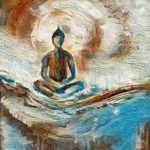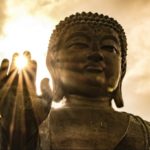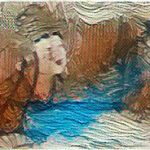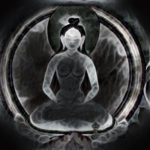Recent Comments
- Chodpa on The Place where the Primordial Speaks
- Chodpa on The Cuckoo of Presence
- Afzar on Bodhidharma’s teacher, Prajnatara
- Vajragoni on Audiobook is released
- Scott on Audiobook is released
-
Recent Posts
Categories
- A Darkness Visible
- A Docetic Assessment
- A Mystical Odyssey through the Sagathakam
- AI Creations
- Akṣayamatinirdeśasūtra
- Akṣhobhya’s Pure Land
- Ālaya-vijñāna
- Anūnatvāpūrṇatvanirdeśaparivarta
- Ariyapariyesanā Sutta
- Ascending the Noble Mountain of Primordial Perfection
- Asceticism
- Ashtavakra Gita in Light of the Unborn
- Audiobook
- Bankei Zen
- Beyond the Ascent
- Beyond the Rainbow Body
- Black Dragon Eye Mandala
- Bodhicitta
- Buddhadharma
- Buddhism’s Black Holes
- Buddhist Anecdotes
- Buddhist Hells
- Buddhist Meditations on the Tarot
- Chuang-Tzu
- Contemporary Musings
- Ḍākiṇī
- Dāsbodh
- Dharmakaya Abbey
- Dharmakaya Stick
- Divine Revelation
- Doctrine of the Void
- Dust Contemplation
- Ekacitta: Advanced Studies in Dark Zen
- Entry into the Dharmadhātu
- Eremitical Dhyani Meditations
- Exploring the Book of Revelation
- Gnostikos
- Hsin Hsin Ming
- Journey to the Center of the Mind
- Karma and Rebirth
- Korean Sŏn
- Kulayarāja Tantra—The Motherly Buddha
- Little Office of Our Lady of the Void
- LSD and Psychedelic Buddhism
- Māṇḍukya Kārikā
- Mañjuśrī Teaches Prajñāpāramitā
- Māra and Satan
- Meister Eckhart
- Mud and Water: Bassui Zen
- Mystagogia
- Nirvana
- Notes from the Iron Stupa
- Nothingness in Nāgārjuna and John of the Cross
- Obscure Religious Cults
- Preparation for the Afterlife
- Primordial Qigong
- Reflections on the Saṃdhinirmocana Sūtra
- Spirituality
- Springtime with Tozen
- Terma: A Mind Film by Vajragoni
- The Afterglow
- The Awakening of Faith
- The Bhagavad Gita
- The Book of Bodhi
- The Cloud of Unknowing in Light of the Unborn
- The Diamond Sutra
- The Divine Ātman
- The Divine Liturgy of Vajrasattva
- The Doctrine of Awakening
- The Dragon Mind of Zen Tarot
- The Elucidation of Consciousness
- The Experience of No-Self
- The Great Perfection of the Unborn Mind: A Book of Privy Counseling
- The Heart Sutra
- The Hermit's Den
- The Khaggavisāṇa Sutta: A Rhinoceros Horn
- The Lankavatara Sutra
- The Lankavatarian Book of the Dead
- The Lion's Roar of Queen Śrīmālā
- The Lotus Sutra
- The Mahāparinirvāṇasūtra
- The Naga Chronicles
- The Platform Sutra
- The Ratnagotravibhāgaśāstra
- The School of the Spirit
- The Secret Golden Light of the Unborn
- The Soul
- The Śūrańgama Sūtra
- The Sutra of Primordial Enlightenment
- The Tathāgatagarbhatārā Tantra
- The Udāna
- The Unborn Mind Mythos
- The Unborn Mind Sessions
- The Unborn Odyssey: A Novel
- The Vajrasamādhi Sutra
- The Vimalakirti Sutra
- The Yogasūtras of Patañjali
- The Zen Teaching of Bodhidharma
- The Zen Teaching of Instantaneous Awakening
- The Zen Teachings of Huang Po
- Theologia Mystica
- Tozen Teaching
- Tsung-mi: An Intimate Study
- Unborn I Ching
- Unborn Light Reiki
- Uncategorized
- Vasubandhu and the Absolute
- Wisdom from the Masters
- Wordsworth and Zen
- Yoga of the Manomayakāya
- Zen
- Zuowang
Archives
- October 2024
- August 2024
- February 2024
- January 2024
- December 2023
- November 2023
- October 2023
- September 2023
- August 2023
- July 2023
- June 2023
- May 2023
- April 2023
- March 2023
- February 2023
- January 2023
- December 2022
- November 2022
- October 2022
- September 2022
- August 2022
- May 2022
- April 2022
- March 2022
- February 2022
- January 2022
- December 2021
- November 2021
- October 2021
- September 2021
- August 2021
- May 2021
- April 2021
- March 2021
- February 2021
- January 2021
- December 2020
- November 2020
- October 2020
- September 2020
- August 2020
- May 2020
- April 2020
- March 2020
- February 2020
- January 2020
- December 2019
- November 2019
- October 2019
- September 2019
- August 2019
- June 2019
- February 2019
- January 2019
- December 2018
- October 2018
- August 2018
- April 2018
- March 2018
- February 2018
- January 2018
- December 2017
- November 2017
- October 2017
- September 2017
- August 2017
- May 2017
- April 2017
- March 2017
- February 2017
- January 2017
- December 2016
- November 2016
- October 2016
- September 2016
- August 2016
- July 2016
- May 2016
- April 2016
- March 2016
- February 2016
- January 2016
- December 2015
- November 2015
- October 2015
- September 2015
- August 2015
- July 2015
- June 2015
- May 2015
- April 2015
- March 2015
- February 2015
- January 2015
- December 2014
- November 2014
- October 2014
- September 2014
- August 2014
- May 2014
- April 2014
- March 2014
- February 2014
- January 2014
- December 2013
- November 2013
- October 2013
- September 2013
- August 2013
- May 2013
- April 2013
- March 2013
- February 2013
- January 2013
- December 2012
- November 2012
- October 2012
- September 2012
- August 2012
- May 2012
- April 2012
- March 2012
- February 2012
- January 2012
- December 2011
- November 2011
- October 2011
Meta
Tag Archives: bodhicitta
The Resurgence of the Venerable Teacher

This impression endured for a fleeting moment, until his eyes readjusted and he was abruptly transported to the shoreline of an expansive beach, which appeared to be of an otherworldly magnitude, with colossal worlds suspended in the distance. Initially, he was under the impression that he was in a state of reverie. However, the authenticity of the waves crashing a few yards away from him and the slimy, algae-covered rocks that extended into the ocean could not be disputed. He ventured forth to discover what this new reality might bring.
Posted in The Unborn Odyssey: A Novel
Tagged Ariyan Mind, bodhichild, bodhicitta, Buddha family, Ch'an Master
Leave a comment
Omniscient Gnosis

Bodhicitta is directly translated as Enlightened-Mind (or Enlightened Consciousness) but also as the Bodhisattva being ready for the next step and that is the “production of the Thought of Enlightenment.” Suzuki identifies it as being Bodhi itself, or as Lankavatarians like to refer to it as “Bodhipower”, or the very vivifying power of the Enlightened Unborn Mind. All of this is bracketed by Bodhicittapada—or the self-awakened and compassionate Mindseal of the Tathagatas, as such it is inconceivable and omniscient. The term for this omniscience is sarvajñajñāna:
The Cult of Compassion

Bodhicitta is a misused and abused term in our dark age. It has become stripped-down to a mere puddle of mediocrity in the hands of those “do-gooders” who paint the world according to their own misguided assessment and faulty utilization of the term–in effect, it has become hijacked by the “cult of compassion.” Compassion itself used to be aligned with agape—or burning with love for the divine. When employed as such it was a direct channel for divine agencies themselves to intervene in human affairs and apply that com-(with the divines’ own) passionate embrace that alone can assure lasting healing and positive aftermaths. Today it has become a whore and tool of Mara, a fiery cult that masks its true intentions of not providing comfort and reassurance, but rather the employment of hidden agendas of keeping one in bondage and subservient to the evil will of politically-correct overlords who never have the good-will of individuals at heart, but rather their mass-incarceration into a dark-collective, much like the mechanized Borgs of Star-Trek the Next Generation fame.
Posted in Bodhicitta, Contemporary Musings, Spirituality
Tagged Agape, bodhicitta, Compassion, love, The Borg
Leave a comment
Dharmatā jumpstarts Bodhicitta

In continuance of our blog from yesterday, Dorji Wangchuk utilizes an article published in 1965 (in German) by the Japanese scholar, Kumatarō Kawada, based on the transcendent and immanent nature of bodhicitta. Our interest is on the article’s discussion of the relationship between bodhicitta and dharmatā. It [rightly] argues that the highest truth—the dharmatā, or the Absolute Essence that is realized inwardly by oneself—is always [the master] over such appellations as Buddha, bodhisattva, bodhicitta, ect:
Posted in Bodhicitta, Spirituality, Uncategorized
Tagged bodhicitta, Dharmata, Kumatarō Kawada
13 Comments
The Buddha Types

Am presently reading an excellent study on the generation of bodhicitta by Dorji Wangchuk in his work, The Resolve to Become a Buddha, A Study of the Bodhicitta Concept in Indo-Tibetan Buddhism. Themed closely is the actual account of what firstly constitutes being a Buddha. The following for your perusal are some of his preliminary accounts of such an understanding.
Posted in Bodhicitta, Spirituality, Uncategorized
Tagged bodhicitta, Buddha, Dorji Wangchuk
Leave a comment
A Clarification of the Fundamental-Essence

5. A Clarification of the Fundamental-Essence
After that the [Supreme Source], mind of perfect purity, instructed [Vajrasattva] in the concise meaning of the teachings about Her own being:
The Central Vigor

4. The Central Vigor
Then the [Supreme Source], mind of perfect purity, gave the following talk about the Reality of the names [given] to Her own being.
Kulayarāja Tantra—The Motherly Buddha

Firstly, I’d like to commend Jonathan for forwarding me the link to the E. K. Neumaier-Dargyay’s translation (The Sovereign All-Creating Mind-The Motherly Buddha:A Translation of the Kun byed rgyal po’i mdo) of this majestic-work. Am most familiar with her erudite skills as another of her books, The Rise of Esoteric Buddhism in Tibet, was the main source of inspiration for my Bodhi-film, Terma: A Mind Film by Vajragoni. From a traditional standpoint, this tantra (extant in Tibetan) presents and focuses on the Supernal-Mind Teaching of the Primordial Buddha, Samantabhadra, who is personified in the text as Bodhicitta, or the Awakened Buddha Mind. We will shortly discuss how for E. K. Neumaier-Dargyay, the text is better rendered as the feminine-side of the Primordial Buddha, or Samantabhadrī—thus the subtitle of this Blog, The Motherly Buddha. First though, how is Bodhicitta best understood in the context of this tantra? Another resource we will be using side by side with the E. K. Neumaier-Dargyay translation is the Dominantly Superb, The Supreme Source:
The World of Appearance

- Though multitudinousness of things has no [real] existence as such, they appear to the intoxicated as like fire-flies because of their constitutional disturbance; like-wise is the world essentially [appearance].
Our apparent world is based on intoxication. Enamored with the colorful dance of the vijnanas, the perceiver can be likened unto a drunkard, stumbling about in a maze of uncertainty as to what is truly Real.
The Fab-Four

Chapter Eight: The Four Dependables
(Mark L. Blum translation):
The Buddha said:
Good man, within this Subtle Sutra of the Great Nirvana there are four kinds of people who capably protect the true-dharma, promote the true-dharma, and keep the true-dharma in their thoughts. They bring much in the way of blessings and mercy to the world, for they are supports for the world, [sources of] tranquil bliss for humans and gods alike.
Posted in The Mahāparinirvāṇasūtra
Tagged anāgāmin, Arhat, āryapudgala, bodhicitta, Buddha Vehicle, catuḥpratisaraṇa, Dharmata, mindstream, sakṛdāgāmin, srotaāpanna
Leave a comment
